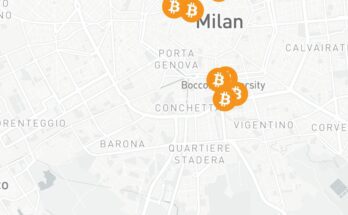Important Cybersecurity Facts for Remote Working Teams
Contributor: Jane Duncan
Around 70% of people in the world work remotely at least once a week, as reported in a study by the International Workplace Group. In lieu of the COVID-19 pandemic, the shift to more companies operating remotely has been relatively seamless. For others, it has been a challenge TBH. As stated by Jack Gold, founder of research and analysis firm J. Gold Associates, “Too many organizations are concentrating on finding a collaboration tool when the bigger issue is training people how to work with others in remote work situations. It’s as much (or more) about the ‘how to’ than ‘what tech I have to do it,’ and many don’t know how.” If your company is currently forging ahead on an online basis and you are interested in the interesting facts about this unique mode of work, you may be surprised to learn how different teams across the globe are making it happen. Companies large and small, and not just tech behemoths like Google, Facebook, and Twitter, are dealing with these challenges as a lot of money is on the line and pressure when facing these bad actors that can also use artificial intelligence and deep learning and computer vision against you.
Insecurity Surrounds Remote Work
In a study by OpenVPN, it was revealed that around 90% of IT professionals believe remote workers are not working securely. Flaws include the use of unsafe WiFi, using personal devices for work matters, and ignoring basic physical security practices in public spaces. Companies across the globe are already adopting strategies that can reduce attacks, including using a VPN when accessing unknown WiFi connections. Workers that carelessly focus on GIF and MEME and talking about HIFW could easily be taken advantage of when remote. Not everything is as secure and robust as the Bitcoin network.
Hackers are Taking Advantage of the COVID-19 Crisis
Bank Info Security (BIS) reports that since the declaration of COVID-19 as a pandemic, “hackers with apparent links to the governments of China, Iran and other nations are using the crisis to create phishing emails designed to lure victims.” Phishing attacks are currently being undertaken using malware strains such as AgentTesla and Trickbot. These are able to steal key data from infected systems. BIS has predicted that as pandemic levels rise in many countries, greater efforts will be made by these threat groups, who are availing both of home confinement and the fact that more teams are working remotely and sharing more data. Be careful when lounging around and listening to Post Malone or Billie Eilish on Youtube. Don’t let 4K HDR distract you from the proper protections.
Phony Chatbots Present a Risk
Human resources group SHRM reports that another prevalent risk for remote working teams is phony chatbots. These bots attempt to trick job applicants or workers to click on links and share either personal information or confidential company data. Others prompt the user to download files, thus conning individuals to install malware. Their success depends on their similarity to other software that remote workers might choose to chat.
Cybersecurity is Key for HR Teams Hiring Remotely
At a time in which many countries are lamenting the loss of jobs and closure of companies, many HR teams are hiring workers via online application systems. Those hiring include delivery companies, online education centers, online communication companies like Microsoft Teams or Zoom, and shipping companies. Many candidates are updating their resumes and sending applications out. Cybersecurity is therefore an issue to contend with, since resumes contain private data that must be kept secure. We all also understand how important a professional resume is. Currently, HR professionals are facing the challenge through multifaceted approaches that include password management software, antivirus protection and firewalls, program updates and data backup solutions. Security options that include fingerprints could help when readily available. The use of antivirus software such as Kaspersky antivirus is also advisable because it is designed to protect users from malware and is primarily designed for computers running Microsoft Windows and macOS.
Mobile Devices Are a Target for Hackers
Many remote workers are communicating via smartphone apps such as WhatsApp, but mobile phones are also being targeted in current climes. There are many points of possible entry for hackers, including individual devices, networks used by remote workers, and specific applications. These risks are increased by the fact that different workers can have an array of apps used for personal purposes. On-device mobile threat detection solutions can be used to detect and prevent attacks. In remote working climes, they can offer solutions that identify risky features and behaviors and provide end-to-end cyber threat detection.
With more people working remotely and relying on online methods of communication and storage, the risk of cyber attacks is increasing. Phishing and ransomware are just two means through which hackers are attempting to take advantage of the current situation. Companies are responding by setting up safe WiFi and data storage protocols, streamlining the use of specific antivirus and firewall protection, and utilizing other systems of communication to avoid sending private or sensitive data via email.



